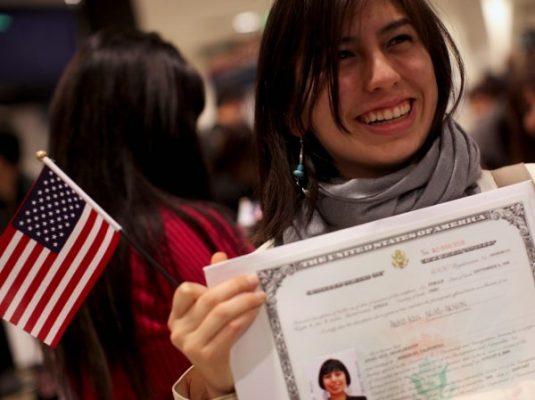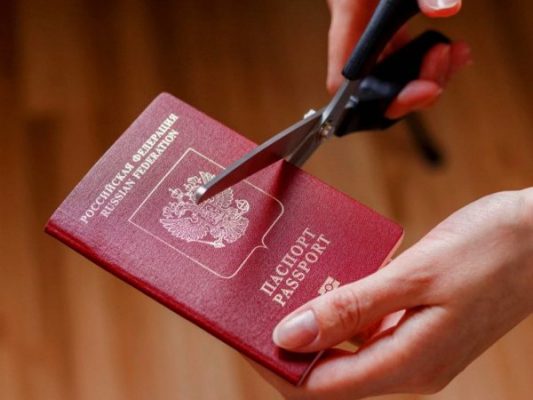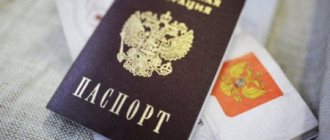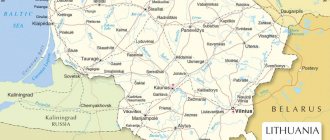Necessity of the procedure
In connection with political events taking place abroad, residents of the CIS countries are trying to move to Russia.
The reasons are different, but many want to return to the state because they consider themselves part of it. The citizens' ancestors were native Russians, and their native language was Russian. Obtaining citizenship is also associated with the privileges provided in our country. This includes official work activity, contributions to the pension fund, and health insurance. Children of a foreign citizen who becomes a Russian citizen will automatically receive the same rights.
Sometimes people live in a foreign country for decades . For them, this status does not create any particular inconvenience, apart from restrictions on participation in politics and the inability to participate in elections.
For other people, changing citizenship is a way to sever existing ties to their country of birth.
Methods of obtaining
You can become a citizen of another country by law or by administrative decision of the authorized bodies. Acquisition of citizenship is carried out on the basis of:
- rights of soil and blood;
- marriage with a citizen of another state;
- naturalization (bestowed mainly for special services to the country).
In the case of jus sanguinis, a person becomes a citizen of another country by being born to parents who are subjects of the state. The law of the soil functions in the same way, according to which status is assigned to those born on the territory of the country. This system does not operate in Europe, but is actively working in the USA, Latin America, Mexico and the Caribbean. Based on the decision made by the immigration service, citizenship is also granted.
History of the formation of the institution of citizenship
Citizenship as a permanent link between the state and the individual existed back in Ancient Greece during the polis and in Ancient Rome, where Roman citizenship was almost a prerequisite for legal capacity.
>> Civil process: goals, participants, stages and principles of civil process
Ancient Rome had an autonomous legal system. Roman citizens (Romanus) were free residents of Rome during the Republic. In 212 AD all free inhabitants of the Roman Empire became Roman citizens.
If a Roman citizen settled in a city outside Italy, he remained a citizen.
Citizenship in the modern sense arose only after the French Revolution, thanks to the emergence of republican thinking, which was enshrined in the Revolutionary Constitution of September 3, 1791 in part 2, section 2 and later included in the Civil Code. Since then, the state has been understood not only as a territorial state or an absolutist monarchy, but also as an association of citizens. Citizenship was introduced in most countries of the world in the 19th century, where citizenship laws were passed.
League of Nations Convention on Civil Conflicts of 1930 in Art. 1. Declares that each State has the competence to determine by its laws who is its citizen. This legislation must be adopted by other States so that it is compatible with international agreements.
The Council of Europe Convention on Nationality of 1997 also decides in a similar way in Art. 3.
According to the Universal Declaration of Human Rights in Art. 15 guarantees that everyone has the right to a nationality.
In 1955, the International Court of Justice ruled that each sovereign state must regulate the acquisition of citizenship by its own laws and also grant it through naturalization granted by its own authorities in accordance with local laws.
However, international law requires that when citizenship is granted, there is a real relationship between citizen and state. Citizenship is a legal bond based on social attachment, real solidarity of existence, interests and feelings, followed by reciprocity of rights and duties.
First stage
Those who wish to change citizenship need to start by getting to know their new homeland. At the same time, a person should study several issues regarding the move. These include:
- migration legislation;
- requirements for candidates;
- the opportunity to get an official job;
- buying a home;
- the need for language proficiency;
- travel to other countries during the legalization process;
- the cost of purchasing basic necessities.
An excellent way to experience the comfort of staying in your chosen state is to visit it as a tourist. Of course, vacationing in a foreign country and living in it permanently are two different things. But often only there can one determine how close a person is to the way of life of a new society. In some countries, citizenship can be purchased with money. This chance is provided in Nevis, St. Kitts and the Commonwealth of Dominica.
Acquiring citizenship through naturalization

Naturalization is the acquisition of citizenship through an executive act. This procedure combines voluntary choice on the part of the citizen, that is, the desire to be a citizen (the confirmation element) and the ability on the part of the state to select other citizens based on the selected characteristics (the control element).
If you have resided legally in the country for a certain period of time, you can apply for citizenship. In addition, there may be requirements regarding knowledge of the language, culture, history of the country, etc.
How intensively this instrument is used by a country (perhaps in the context of targeted population policies to attract new or targeted residents and citizens) determines the attractiveness of the state as a country for emigration. However, there is no evidence that a country's attractiveness for emigration is causally related to specific naturalization or citizenship laws.
Many legal systems also make generous use of naturalization as a tool to bypass complex and detailed legal mechanisms and retain a certain amount of flexibility.
When re-acquiring citizenship, some countries require you to renounce your previous citizenship, while others allow dual citizenship.
In general, a person can acquire citizenship by application to the authorities of the country, if so provided by national legislation. It usually comes with a few requirements and characteristics and is a minimalist form of naturalization.
Change process
In any country, the process of changing citizenship has distinctive features. In general it can be described as follows:
- Entry into the country on the basis of a resident visa.
- Registration at the place of stay.
- Obtaining a residence permit, which must be renewed at certain intervals.
- Leaving the country is permissible for a certain period.
After several years of residence in the country, it is allowed to provide documents for permanent
location. This status gives more opportunities and rights. You can also apply for citizenship and obtain a passport.
At the final stage, it is necessary to prove that the person has integrated into the new society, he has a permanent source of income, he has not committed crimes and does not pose a threat to civilians.
According to a simplified scheme, citizenship can be changed by foreigners who know the Russian language well and can speak it in everyday life, as well as persons born in Russia or who have Russian relatives. Businessmen and investors who want to invest money in business in this country can also obtain citizenship under a simplified scheme. The receipt process includes a procedure consisting of collecting the necessary documents and submitting an application to the Federal Migration Service.
Loss of citizenship

Some countries also have separate rules regarding loss of citizenship, for example due to treason, escaping abroad to avoid military service, etc.
A person who loses his only citizenship becomes stateless (stateless person).
Loss of citizenship can also occur in liberal states as a result of unilateral actions by a citizen. There are also countries that do not allow loss of citizenship or only allow it in very limited exceptional cases.
>> Personal and social identification
By law, loss of citizenship occurs in many countries when a citizen voluntarily acquires another citizenship or enlists in a foreign military service. Even if a child is adopted by a foreigner and loses family ties in his homeland, the legal system of many states deprives him of his original citizenship.
Until recently, women who married a foreigner often lost their citizenship (and usually automatically acquired the husband's citizenship). Today this is only available in some countries.
In many states, a citizen can simply renounce his citizenship at will (even if after this he will not have any citizenship at all - stateless). Such a waiver is often tied to obligations:
- reimbursement of training expenses;
- settlement of tax debts;
- urgent military service, etc.
Totalitarian regimes also use expatriation (forced denial of citizenship) as a means of exerting pressure to disenfranchise or get rid of politically undesirable citizens.
Special cases arise in the event of territorial changes following armed conflicts or in the event of the collapse of a state (for example, a multinational state). As a rule, the citizenship of the successor state is assumed here automatically or there are certain criteria, such as ethnicity, place of residence, military service, etc.
Guide to action
In order to become a citizen of another state without any problems, you need to carry out a number of actions. Instructions for a person wishing to change citizenship:
- Writing a renunciation of existing citizenship and having it certified by a notary for submission to the FMS.
- Obtaining a temporary residence permit in the country.
- Providing the passport of the applicant and his family members. For children, presentation of a birth certificate.
- A document that is the basis for considering the applicant to belong to the country and its culture. This could be a birth certificate from parents in the Russian Federation. It may be that the applicant himself was born in Russia, but moved to another state.
- Educational and medical documents.
- Migration cards.
With the specified list of documents, you need to go to the FMS, write an application there and attach a response. The procedure for acquiring citizenship can take from three months to a year. After receiving a satisfactory answer, the citizen is sent to apply for a new passport. The old document is taken away by the authorities.
The main reasons for changing citizenship may be a person’s desire to get a job in Russia, as well as to receive a decent education. Sometimes a person wants to change his profession in this way .
If there is a change in professional activity in Russia, you need to apply for a residence permit, and then after five years receive Russian citizenship. In this case, it is not necessary to renew the employment agreement.











